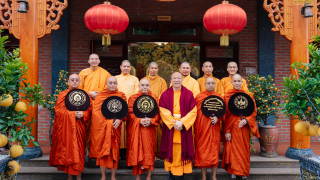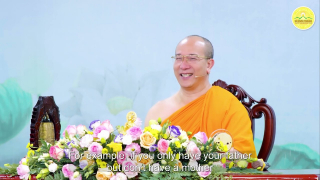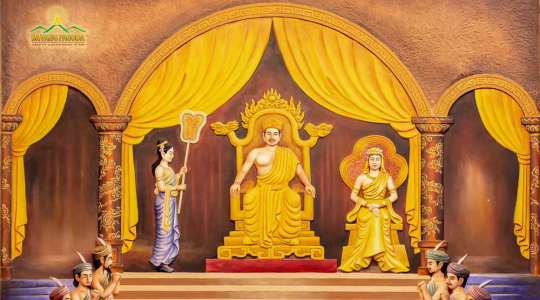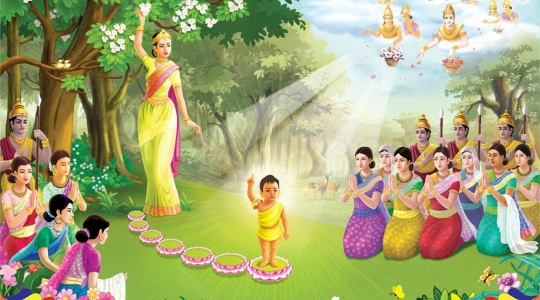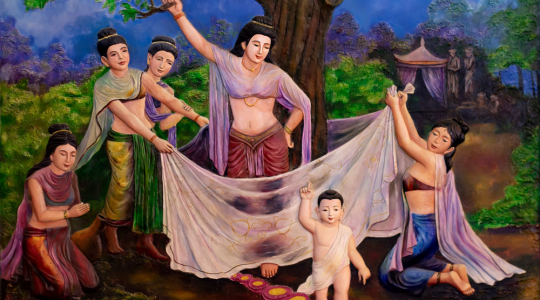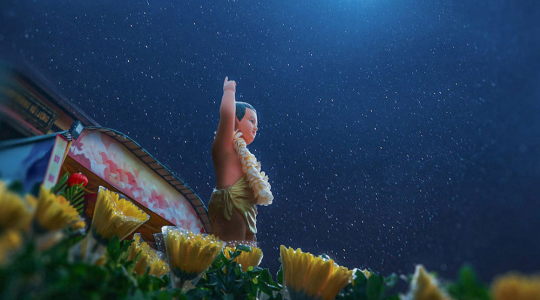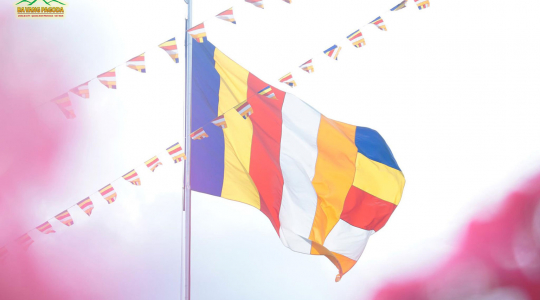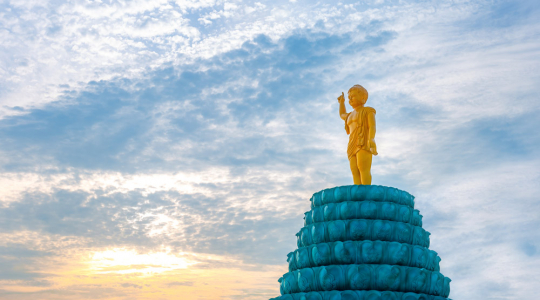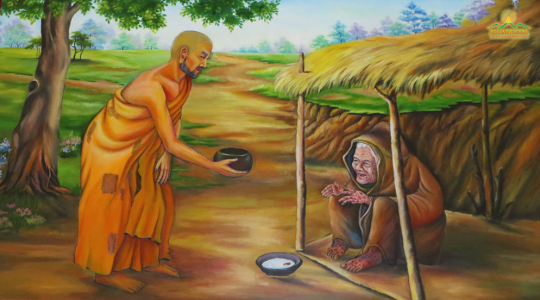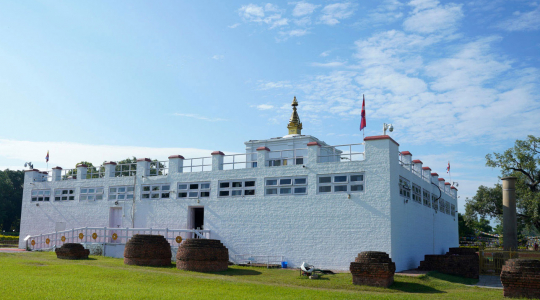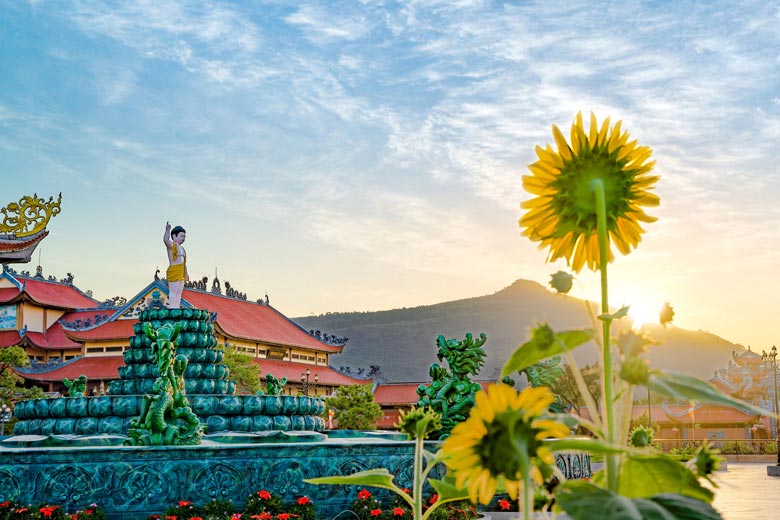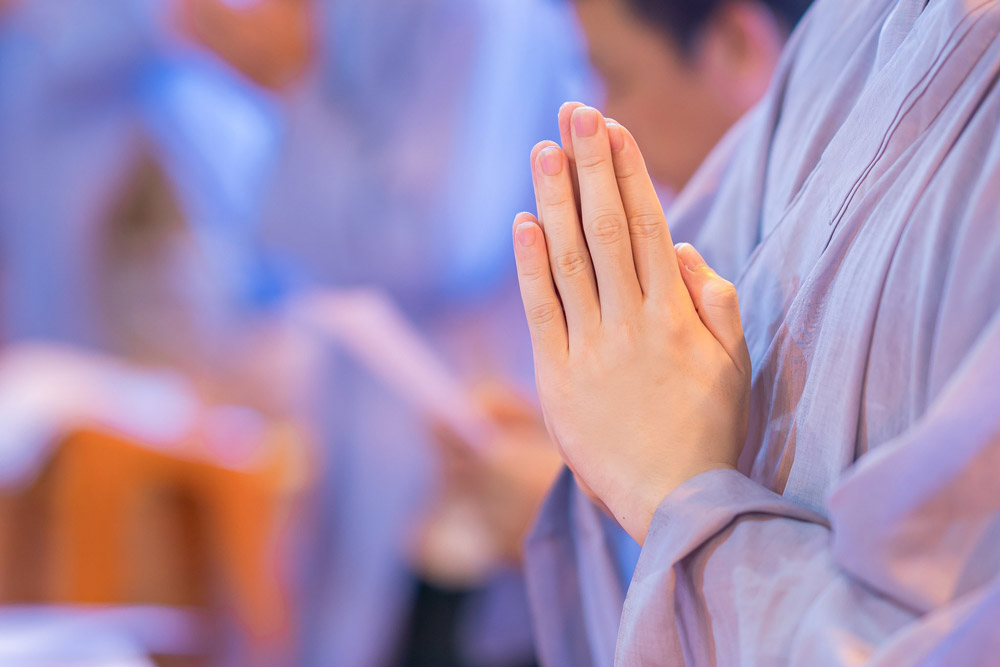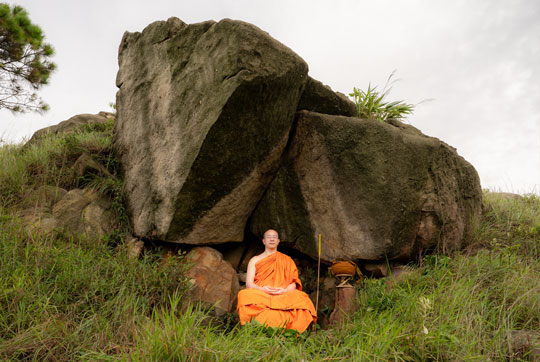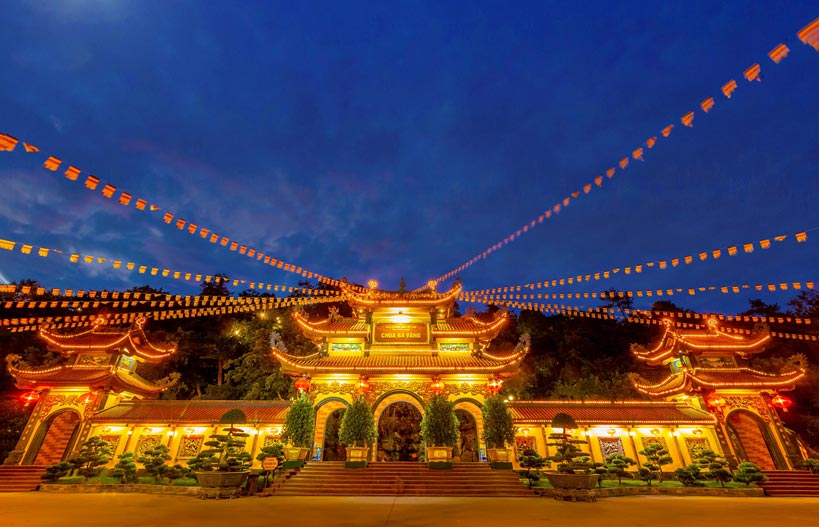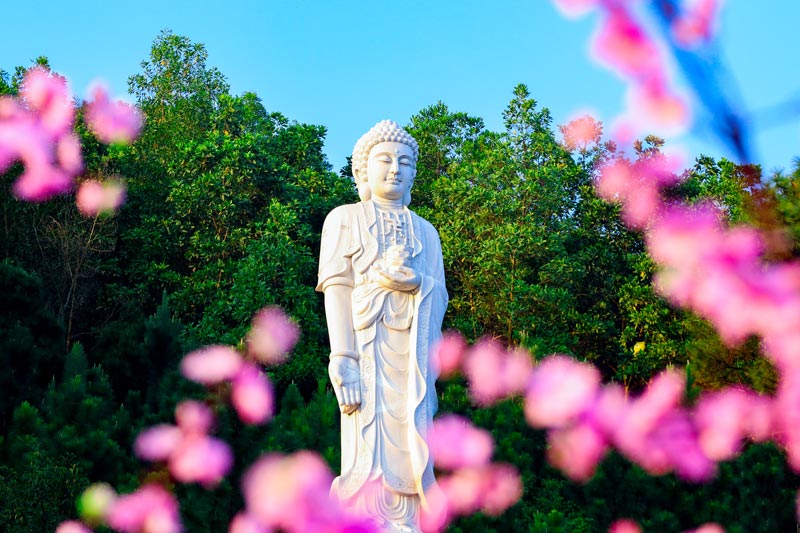Ullambana Ceremony - Lighting up filial piety
Table of contents [Hide]
- 1. What is the Ullambana Ceremony?
- 2. The Origin of the Ullambana Ceremony
- 3. What can we do to repay our parent's debts in the Ullambana month?
- For our parents alive in the present life
- Instructing them to Buddhism - the everlasting happiness path
- Making offerings to the Three Jewels and transferring the blessings to our parents
- For deceased parents: Making offerings to form an auspicious connection
The Ullambana Ceremony, also known as the Filial Piety Ceremony, is one of the most important occasions in Buddhism. It is a special occasion for people to show their gratitude to their parents.
1. What is the Ullambana Ceremony?
“Ullambana” is a transliteration of a Sanskrit word, meaning “deliverance from being hung upside-down.” The word “upside down” represents suffering in hell. Humans bearing evil karma can be reborn in hell and endure brutal torture after death.
Therefore, the Ullambana Ceremony carries the meaning of saving those who are suffering in hell; it is also an occasion for everyone to fulfill their filial duties to their parents and ancestors.
2. The Origin of the Ullambana Ceremony
The Ullambana tradition began with the legend of Maudgalyayana (Moggalana in Pali)—one of the Buddha's Great Disciples—who saved his mother from the realm of hungry ghosts.
After the Great Moggallana had just attained Arahantship, he immediately thought of his deceased mother. Using his divine eye to search all realms, he saw that his mother was reborn in the realm of hungry ghosts; her abdomen was as big as a drum, but her neck was just as tiny as the tip of a needle. She was terribly tormented with hunger and thirst.
Feeling great pity for his mother, Moggallana went on alms round, filling his alms bowl with food, and used supernatural powers to offer it to his mother. Due to her greed and selfishness, the mother tried to use her hands to cover the bowl so that other hungry ghosts would not see and rob it away. However, the food turned into burning coals before she could eat it.
Maudgalyayana was in anguish because he couldn't help his mother despite using all his superpowers. He then rushed back to tell the Buddha everything and asked for help.
The Buddha told him to wait until the seventh lunar month. On the Pavarana day - the end of the 3-month Rain Retreat, if he made great offerings to the monks, he would receive huge blessings. It was due to the monks' diligent cultivation and practice in these three months that immense merits would be generated. If he transferred these huge blessings to his mother, he would save her from the realm of hungry ghosts and his mother would be reborn in a celestial realm.
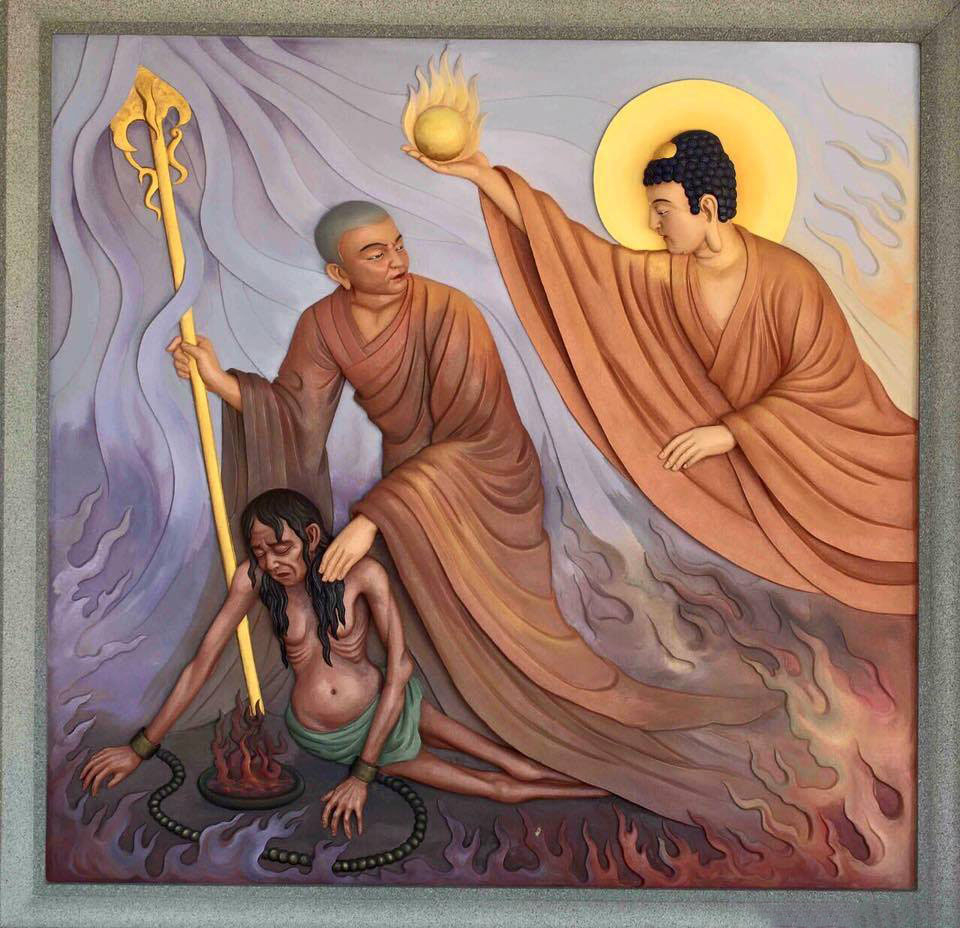
The Buddha taught the Great Moggallana how to save his mother from the torturing realm of hungry ghosts
He followed the Buddha's instructions, and then not only his mother but also numerous hungry ghosts were saved and reincarnated in the heavenly realms.
Inspired by this story, every year in the seventh lunar month (nowadays also known as the Ullambana month), people celebrate the Ullambana Ceremony to show their gratitude towards their parents, their grandparents as well as their ancestors.
It is also known as the month of absolving the deceased. On this occasion, people respectfully make offerings to the Three Jewels in order to transfer their merits to their ancestors, which may save them from the realm of hungry ghosts and hell.
3. What can we do to repay our parent's debts in the Ullambana month?
Our parents are our special sources of love, they give us our bodies and raising us. In the Ullambana season, we should recall and keep this filial mind to repay our parents through practical actions.
For our parents alive in the present life
Instructing them to Buddhism - the everlasting happiness path
In addition to taking care of and supporting ones' parents, Buddhists must be responsible for instructing them to get into Buddhism, take refuge in the Three Jewels, uphold Buddhist precepts, as well as deeply believe in the law of cause and effect and apply it into their life. In other words, we must lead them toward enlightenment so that they voluntarily stop doing bad deeds and keep doing good deeds to be reborn in auspicious realms. That is how we fulfill our duties and repay our parents' favor.
Material things we provide for our parents just bring them happiness in the current life; however, at the time of death, no one can accompany them and we also don't know where they will go after death.
Nevertheless, if our parents enter Buddhism, they can stand firm and protect themselves. Buddhism will be a “crutch” bearing up and protecting them on their way out, making them safe and peaceful.
Making offerings to the Three Jewels and transferring the blessings to our parents
We should also make offerings to the Three Jewels and transfer the generated blessings to our parents to reduce or eliminate their bad karma, to increase their longevity and wisdom, and to help them follow and practice Buddhism. We should do everything possible so that our parents and we can rely on the Three Jewels, on the Buddha's teachings.
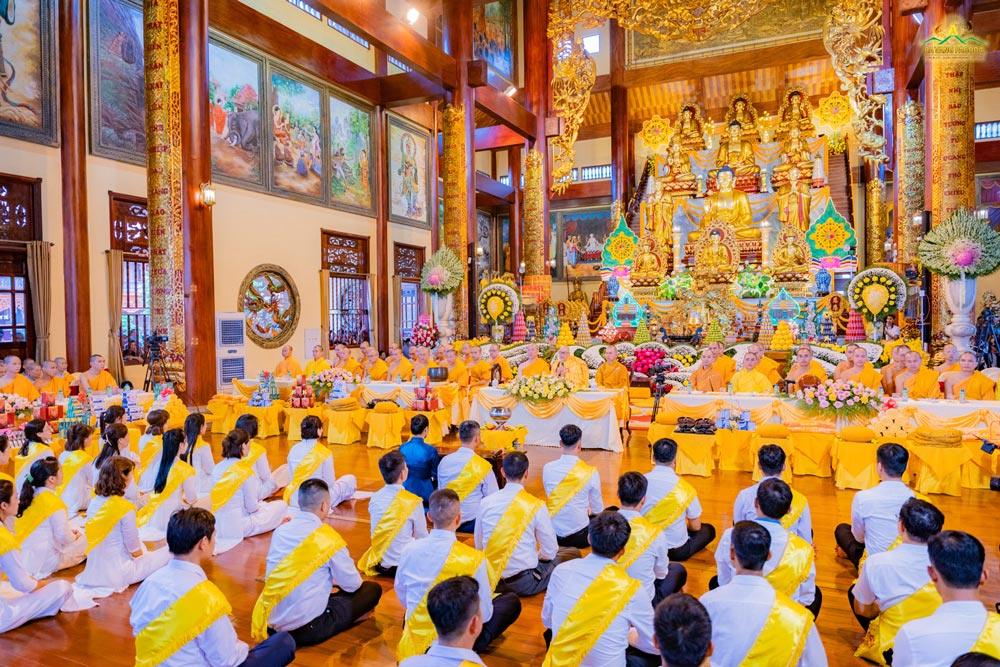
Buddhists offering to Monks and Nuns at Ba Vang Pagodas Ullambana Festival
For deceased parents: Making offerings to form an auspicious connection
From the perspective of Buddhism, we have parents not only in this life but also in past lives. The Buddha taught us how to repay our deceased parents in many past lives, which is none other than making offerings to the Three Jewels and transferring generated blessings to our parents so that they can receive them and, particularly, connect with the Three Jewels. Then, in every life onwards, they will have good karma to meet the Three Jewels, practice the Buddha Dharma to attain enlightenment, and escape from reincarnation soon. It is also the wish of Buddhist followers who cultivate filial piety.
Through this article, we hope you will understand the origin and meaning of the Ullambana Ceremony. From that, each of us will light a candle of filial piety in mind, cultivating filial piety according to the Buddha's teachings. As a result, with increased merits, you and your family will be benefitted.


